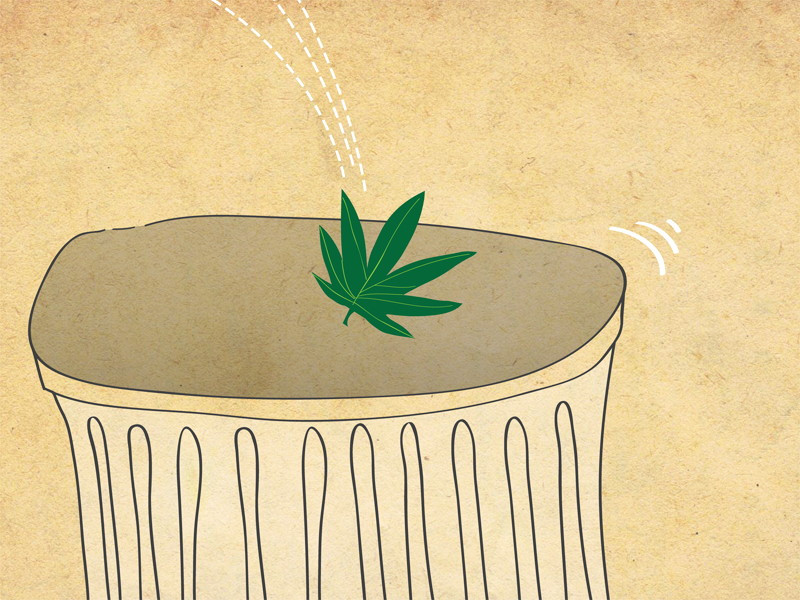Legalize it
Debate around Proposition 19 shows movement is gaining strength
On Nov. 2, California voters rejected Proposition 19, a ballot initiative that, if passed, would have legalized personal marijuana possession, use, growth and distribution for adults over the age of 21. It also would have allowed the government to sell the drug at licensed establishments.
Even though 54 per cent voted against the proposition, it is encouraging to see that 46 per cent supported it.
Proposition 19 successfully pushed the issue of ending marijuana prohibition into mainstream politics, a significant step forwards to someday ending failed drug policies permanently.
Stephen Gutwillig, California state director of the Drug Policy Alliance, recently claimed that the debate is shifting from whether marijuana should be legalized, to how and when.
Responsible adults should not be criminalized for using a substance that was proven to be less harmful than alcohol in a recent British study published in the widely respected medical journal The Lancet.
These researchers discovered that marijuana is less destructive – to the individual and to society as a whole – than alcohol.
Why should we allow governments to impose outdated moral judgments of what should be considered deviant through the use of such a powerful instrument as criminal law?
People should have a basic right to make choices for themselves, as long as their actions do not harm others or infringe upon others’ rights and freedoms. Individual liberty is a fundamental value in our society, a value that must be upheld in this particular context.
The benefits of legalization are plentiful. It would free up law enforcement, courts and corrections resources to focus on investigating crimes with more serious social consequences.
Legalization would likely reduce violence and crimes associated with the “underground market” of marijuana distribution, reduce prisons costs and prison overcrowding.
Prohibition is extremely expensive and is an ineffective solution to the problems associated with marijuana use. Billions of dollars are spent prosecuting and incarcerating people for marijuana related offences, yet drug use is still prevalent.
As the National Organization for the Reform of Marijuana Laws states on their website: “prohibition creates criminals. Our laws are based, not on science or social need, but on arbitrary moral judgment including racism and class issues.”
“ The fact that legalization was put to a vote marks an historic victory for marijuana reform efforts and for broadening the movement towards legalization
Being branded with a criminal record, even for simple possession, severely limits future employment and life prospects. Such limitations are very harmful in relation to the low danger posed by marijuana possession.
Money used to fight marijuana use and distribution could be much better spent on public health services, education about the effects of drug use and regulation of the substance.
Marijuana use should be a public health issue, not a criminal one.
Even though Proposition 19 was defeated, it has made prominent the international dialogue about marijuana legalization. Its prominence has successfully brought the issue into the public spotlight.
The fact that legalization was put to a vote marks an historic victory for marijuana reform efforts and for broadening the movement towards legalization.
The legalization movement is rapidly gaining momentum and continuing to grow in its influence regarding political policies.
We need to shift from failed drug policies towards smart and progressive solutions based on scientific research instead of political ideology and government approximation of morality.
Prohibition yields no overall positive outcomes for individuals, personal freedoms or for society.
Marijuana should be removed from the criminal justice system entirely. Personal choice should be a freedom, not a crime.
Brittany Thiessen is the communications officer for the University of Winnipeg’s Criminal Justice Students’ Association.
Published in Volume 65, Number 11 of The Uniter (November 11, 2010)








